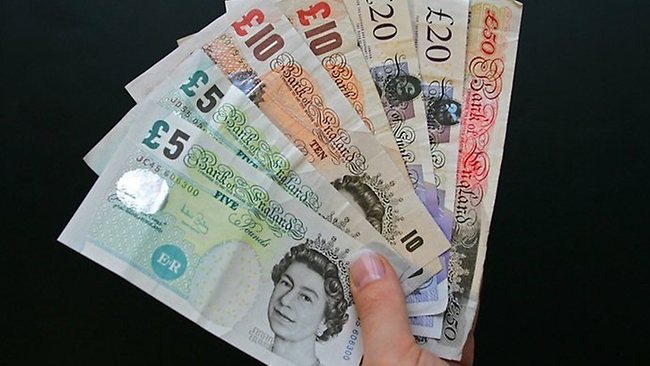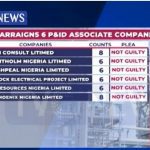British shell companies have been linked to 52 money laundering scandals involving 80 billion pounds ($105 billion) in the past 14 years, according to researchers at campaign group Transparency International.
Tax evasion and financial crime has shot to the top of the international agenda in recent days following reports based on leaked documents from Appleby, a prominent offshore law firm founded in Bermuda.
Fraudsters in eastern Europe and elsewhere often channel money through UK-registered entities because they appear to many people as more legitimate than tax haven-registered companies, the non-governmental body said.
It is the only country to have introduced a functioning, publicly-available register of true beneficial owners of companies.
However, the system is poorly policed. Companies House, the body which overseas British corporate records, does not have the resources to verify the information submitted to it.
Also, successive British governments have sought to make it easy to register companies, for example allowing people to do so online and without verifying their identification, in the hope this spurs entrepreneurship.
This has led to a small industry of formation agents establishing blocks of companies and partnerships which they then make available to overseas parties.
Transparency International found that around half of the 766 companies alleged to have been involved in money laundering schemes were based at just eight UK addresses.
British shell companies have been linked to 52 money laundering scandals involving 80 billion pounds ($105 billion) in the past 14 years, according to researchers at campaign group Transparency International.
Tax evasion and financial crime has shot to the top of the international agenda in recent days following reports based on leaked documents from Appleby, a prominent offshore law firm founded in Bermuda.
Fraudsters in eastern Europe and elsewhere often channel money through UK-registered entities because they appear to many people as more legitimate than tax haven-registered companies, the non-governmental body said.
It is the only country to have introduced a functioning, publicly-available register of true beneficial owners of companies.
However, the system is poorly policed. Companies House, the body which overseas British corporate records, does not have the resources to verify the information submitted to it.
Also, successive British governments have sought to make it easy to register companies, for example allowing people to do so online and without verifying their identification, in the hope this spurs entrepreneurship.
This has led to a small industry of formation agents establishing blocks of companies and partnerships which they then make available to overseas parties.
Transparency International found that around half of the 766 companies alleged to have been involved in money laundering schemes were based at just eight UK addresses.
British shell companies have been linked to 52 money laundering scandals involving 80 billion pounds ($105 billion) in the past 14 years, according to researchers at campaign group Transparency International.
Tax evasion and financial crime has shot to the top of the international agenda in recent days following reports based on leaked documents from Appleby, a prominent offshore law firm founded in Bermuda.
Fraudsters in eastern Europe and elsewhere often channel money through UK-registered entities because they appear to many people as more legitimate than tax haven-registered companies, the non-governmental body said.
It is the only country to have introduced a functioning, publicly-available register of true beneficial owners of companies.
However, the system is poorly policed. Companies House, the body which overseas British corporate records, does not have the resources to verify the information submitted to it.
Also, successive British governments have sought to make it easy to register companies, for example allowing people to do so online and without verifying their identification, in the hope this spurs entrepreneurship.
This has led to a small industry of formation agents establishing blocks of companies and partnerships which they then make available to overseas parties.
Transparency International found that around half of the 766 companies alleged to have been involved in money laundering schemes were based at just eight UK addresses.
British shell companies have been linked to 52 money laundering scandals involving 80 billion pounds ($105 billion) in the past 14 years, according to researchers at campaign group Transparency International.
Tax evasion and financial crime has shot to the top of the international agenda in recent days following reports based on leaked documents from Appleby, a prominent offshore law firm founded in Bermuda.
Fraudsters in eastern Europe and elsewhere often channel money through UK-registered entities because they appear to many people as more legitimate than tax haven-registered companies, the non-governmental body said.
It is the only country to have introduced a functioning, publicly-available register of true beneficial owners of companies.
However, the system is poorly policed. Companies House, the body which overseas British corporate records, does not have the resources to verify the information submitted to it.
Also, successive British governments have sought to make it easy to register companies, for example allowing people to do so online and without verifying their identification, in the hope this spurs entrepreneurship.
This has led to a small industry of formation agents establishing blocks of companies and partnerships which they then make available to overseas parties.
Transparency International found that around half of the 766 companies alleged to have been involved in money laundering schemes were based at just eight UK addresses.
British shell companies have been linked to 52 money laundering scandals involving 80 billion pounds ($105 billion) in the past 14 years, according to researchers at campaign group Transparency International.
Tax evasion and financial crime has shot to the top of the international agenda in recent days following reports based on leaked documents from Appleby, a prominent offshore law firm founded in Bermuda.
Fraudsters in eastern Europe and elsewhere often channel money through UK-registered entities because they appear to many people as more legitimate than tax haven-registered companies, the non-governmental body said.
It is the only country to have introduced a functioning, publicly-available register of true beneficial owners of companies.
However, the system is poorly policed. Companies House, the body which overseas British corporate records, does not have the resources to verify the information submitted to it.
Also, successive British governments have sought to make it easy to register companies, for example allowing people to do so online and without verifying their identification, in the hope this spurs entrepreneurship.
This has led to a small industry of formation agents establishing blocks of companies and partnerships which they then make available to overseas parties.
Transparency International found that around half of the 766 companies alleged to have been involved in money laundering schemes were based at just eight UK addresses.
British shell companies have been linked to 52 money laundering scandals involving 80 billion pounds ($105 billion) in the past 14 years, according to researchers at campaign group Transparency International.
Tax evasion and financial crime has shot to the top of the international agenda in recent days following reports based on leaked documents from Appleby, a prominent offshore law firm founded in Bermuda.
Fraudsters in eastern Europe and elsewhere often channel money through UK-registered entities because they appear to many people as more legitimate than tax haven-registered companies, the non-governmental body said.
It is the only country to have introduced a functioning, publicly-available register of true beneficial owners of companies.
However, the system is poorly policed. Companies House, the body which overseas British corporate records, does not have the resources to verify the information submitted to it.
Also, successive British governments have sought to make it easy to register companies, for example allowing people to do so online and without verifying their identification, in the hope this spurs entrepreneurship.
This has led to a small industry of formation agents establishing blocks of companies and partnerships which they then make available to overseas parties.
Transparency International found that around half of the 766 companies alleged to have been involved in money laundering schemes were based at just eight UK addresses.
British shell companies have been linked to 52 money laundering scandals involving 80 billion pounds ($105 billion) in the past 14 years, according to researchers at campaign group Transparency International.
Tax evasion and financial crime has shot to the top of the international agenda in recent days following reports based on leaked documents from Appleby, a prominent offshore law firm founded in Bermuda.
Fraudsters in eastern Europe and elsewhere often channel money through UK-registered entities because they appear to many people as more legitimate than tax haven-registered companies, the non-governmental body said.
It is the only country to have introduced a functioning, publicly-available register of true beneficial owners of companies.
However, the system is poorly policed. Companies House, the body which overseas British corporate records, does not have the resources to verify the information submitted to it.
Also, successive British governments have sought to make it easy to register companies, for example allowing people to do so online and without verifying their identification, in the hope this spurs entrepreneurship.
This has led to a small industry of formation agents establishing blocks of companies and partnerships which they then make available to overseas parties.
Transparency International found that around half of the 766 companies alleged to have been involved in money laundering schemes were based at just eight UK addresses.
British shell companies have been linked to 52 money laundering scandals involving 80 billion pounds ($105 billion) in the past 14 years, according to researchers at campaign group Transparency International.
Tax evasion and financial crime has shot to the top of the international agenda in recent days following reports based on leaked documents from Appleby, a prominent offshore law firm founded in Bermuda.
Fraudsters in eastern Europe and elsewhere often channel money through UK-registered entities because they appear to many people as more legitimate than tax haven-registered companies, the non-governmental body said.
It is the only country to have introduced a functioning, publicly-available register of true beneficial owners of companies.
However, the system is poorly policed. Companies House, the body which overseas British corporate records, does not have the resources to verify the information submitted to it.
Also, successive British governments have sought to make it easy to register companies, for example allowing people to do so online and without verifying their identification, in the hope this spurs entrepreneurship.
This has led to a small industry of formation agents establishing blocks of companies and partnerships which they then make available to overseas parties.
Transparency International found that around half of the 766 companies alleged to have been involved in money laundering schemes were based at just eight UK addresses.














